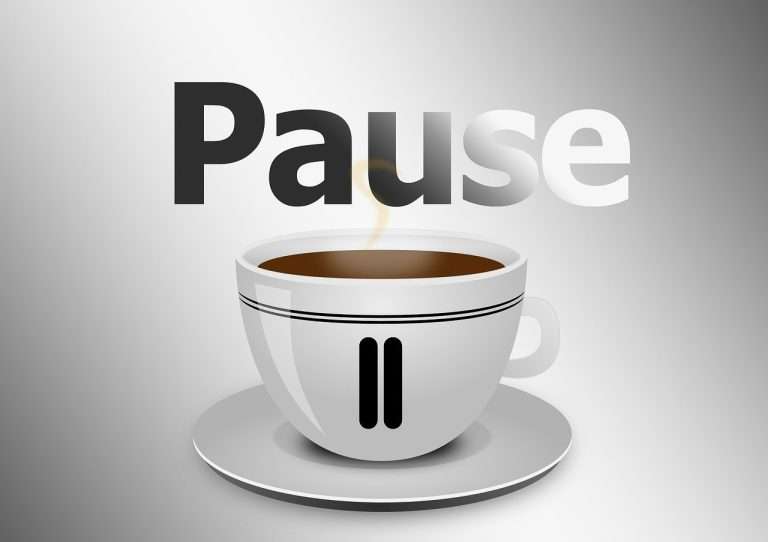Coffee Before or After Workout?
Brief background on the popularity of coffee and its role in daily routines
Coffee has been a popular beverage for centuries, with its origins tracing back to Ethiopia in the 9th century. Today, it is a staple in the daily routines of millions of people worldwide. Many people rely on coffee for its energizing effects, while others appreciate the warmth, aroma, and flavor that comes with each cup.
The importance of understanding the best time to consume coffee in relation to workouts
As coffee has become more integrated into our lives, it is essential to understand how it can impact our physical performance and recovery. This is particularly important for individuals who are engaged in regular workouts, as the timing of coffee consumption can influence their overall experience and results.
The objective of the article: to explore the benefits and drawbacks of consuming coffee before and after workouts
This article aims to provide an in-depth analysis of the pros and cons of consuming coffee before and after a workout. By examining the evidence and considering individual factors, the reader will be better equipped to make an informed decision about when to incorporate coffee into their workout routine.

Consuming coffee before a workout
1. The benefits
a. Improved focus and alertness
Caffeine, the primary active ingredient in coffee, is a stimulant that enhances focus and alertness. By consuming coffee before a workout, individuals can experience increased mental clarity, which may improve their concentration during exercise and help them execute movements with greater precision.
b. Increased endurance and performance
Numerous studies have demonstrated that caffeine can increase endurance and overall performance during exercise. This is likely due to its ability to reduce the perception of fatigue, allowing individuals to push through physical barriers and achieve higher levels of intensity.
c. Enhanced fat oxidation
Caffeine has been shown to increase the rate of fat oxidation during exercise, which may help individuals utilize fat stores for energy more effectively. This can be particularly beneficial for those seeking to lose weight or improve their body composition.
2. The drawbacks
a. Potential gastrointestinal discomfort
Some individuals may experience gastrointestinal discomfort after consuming coffee, particularly when ingested on an empty stomach. This can lead to bloating, cramping, or nausea during a workout, which may negatively impact performance.
b. Increased heart rate and blood pressure
Caffeine can cause an increase in heart rate and blood pressure, which could pose a risk for individuals with pre-existing cardiovascular conditions. It is essential to consult with a healthcare professional before using coffee as a pre-workout stimulant, particularly for those with a history of heart problems.
c. Development of caffeine tolerance and dependence
Regular consumption of caffeine can lead to the development of tolerance and dependence, which may reduce its effectiveness as a pre-workout stimulant over time. It is crucial to manage consumption carefully and consider taking periodic breaks from caffeine to maintain its benefits.

Consuming coffee after a workout
1. The benefits
a. Accelerated recovery and reduced muscle soreness
Research suggests that caffeine may help reduce muscle soreness and accelerate recovery following exercise. This can be particularly beneficial for individuals who engage in high-intensity workouts or those who experience delayed onset muscle soreness (DOMS).
b. Increased glycogen replenishment
Consuming coffee after a workout, particularly when combined with carbohydrates, may help increase the rate of glycogen replenishment in the muscles. This can be crucial for athletes and fitness enthusiasts who need to recover quickly between training sessions.
c. Potential to enhance adaptation to training
Emerging evidence suggests that caffeine may have the potential to enhance adaptation to training by influencing various cellular processes involved in muscle growth and repair. While further research is needed to fully understand these mechanisms, incorporating coffee into post-workout routines could potentially aid in optimizing training outcomes over time.

2. The drawbacks
a. Possible interference with sleep quality
Consuming coffee too close to bedtime can interfere with sleep quality, as caffeine has a half-life of approximately 3 to 5 hours. Since proper sleep is essential for recovery and overall health, it is important to time post-workout coffee consumption in a way that does not negatively impact sleep.
b. Overstimulation and anxiety
For some individuals, consuming coffee after a workout can lead to feelings of overstimulation and anxiety. This can be counterproductive to the relaxation and recovery process, so it is essential to be mindful of one’s personal tolerance and response to caffeine.
c. Reduced nutrient absorption
Caffeine can interfere with the absorption of certain nutrients, such as calcium and iron. To minimize these effects, it is crucial to time coffee consumption appropriately in relation to meals and consider supplementing with the necessary nutrients if needed.

Factors to consider when choosing the timing of coffee consumption
1. Individual caffeine sensitivity
People have varying levels of sensitivity to caffeine, which can significantly impact their response to coffee consumption. It is essential to be aware of one’s personal tolerance and adjust the timing and dosage of coffee accordingly.
2. The type and intensity of the workout
The optimal timing of coffee consumption may vary depending on the type and intensity of the workout. For example, consuming coffee before an endurance-based workout may be more beneficial than doing so before a high-intensity interval training (HIIT) session. It is essential to consider the specific demands of the exercise when deciding when to consume coffee.
3. The timing of other meals and supplements
The timing of coffee consumption should be coordinated with meals and other supplements to maximize nutrient absorption and overall health. Ideally, coffee should be consumed at least 1 to 2 hours before or after a meal to minimize its impact on nutrient absorption.
4. Personal preferences and lifestyle factors
Ultimately, the best time to consume coffee in relation to a workout will depend on individual preferences and lifestyle factors. It is important to experiment with different timings and observe how one’s body responds to determine the optimal balance.
Conclusion
Summary of the main findings regarding coffee consumption before and after workouts
In summary, consuming coffee before a workout can provide benefits such as improved focus, increased endurance, and enhanced fat oxidation. However, it may also cause drawbacks like gastrointestinal discomfort, increased heart rate, and potential dependence. On the other hand, consuming coffee after a workout may aid in recovery, glycogen replenishment, and potentially enhance adaptation to training. Yet, it can also interfere with sleep quality, cause overstimulation, and reduce nutrient absorption.

Individual preferences and factors when making a decision
When deciding whether to consume coffee before or after a workout, it is crucial to consider individual factors such as caffeine sensitivity, the type and intensity of the workout, and personal preferences. Each person’s response to coffee will vary, making it essential to tailor consumption to one’s unique needs and goals.
Find the optimal balance for one’s own body and goals
Ultimately, the best approach to determining the ideal timing for coffee consumption in relation to workouts is through experimentation. By trying different timings and observing the effects on performance and recovery, individuals can find the optimal balance that supports their fitness goals and overall well-being.







